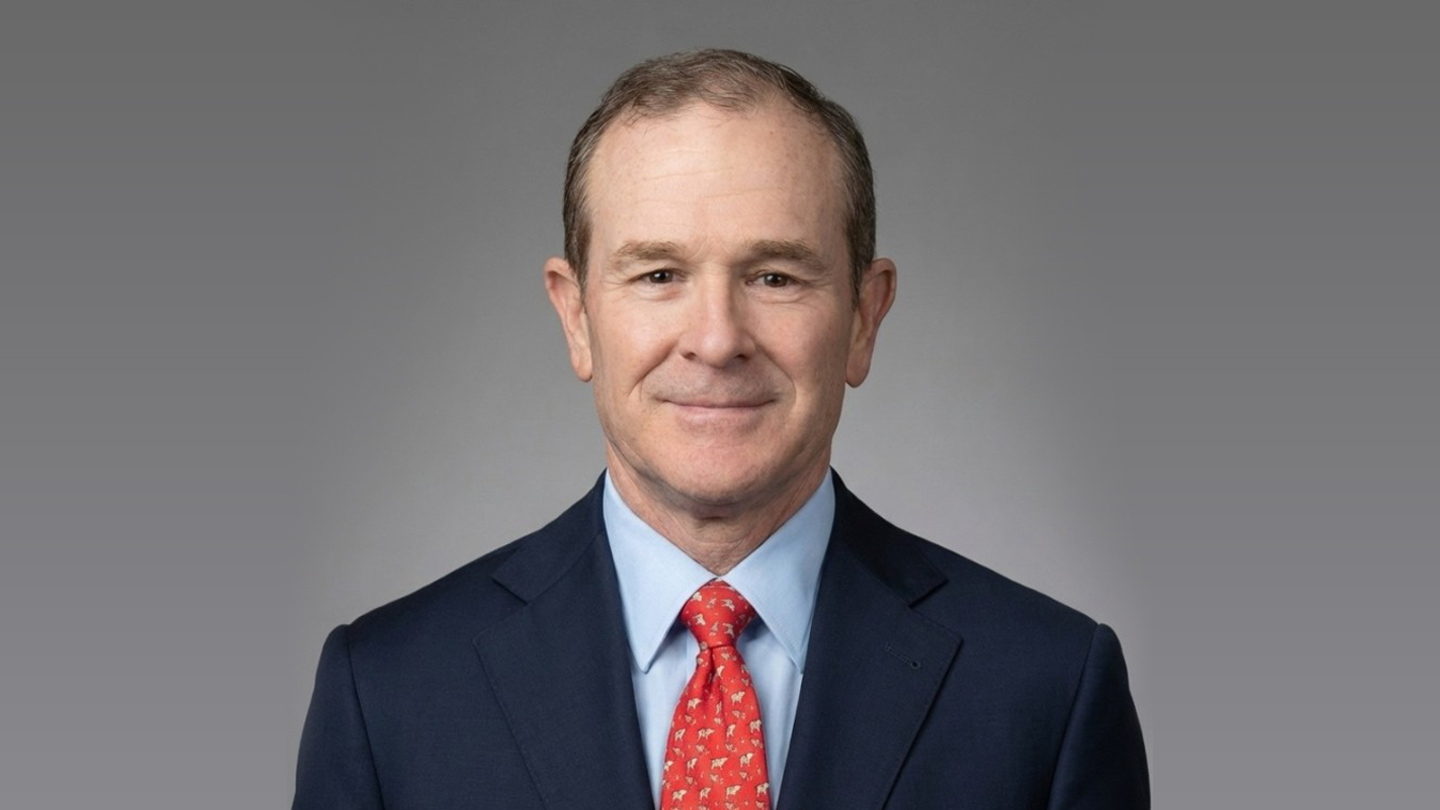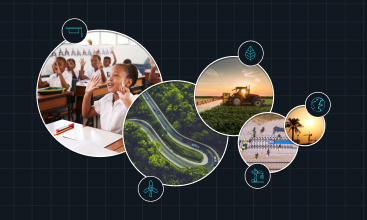Investment
Banking
Providing investment banking solutions, including M&A, capital raising and risk management, for a broad range of corporations, institutions and governments

Our leadership
J.P. Morgan’s Investment Banking group is led by industry experts with deep experience and insight.
Meet the key executives who drive innovation and shape deal-making across the investment banking landscape.



Capabilities in Investment Banking

Mergers & Acquisitions
Bespoke M&A solutions on a global scale.

Capital Markets
Holistic coverage across capital markets.

Industry Coverage
J.P. Morgan’s industry coverage teams serve the evolving needs of global clients across a broad range of sectors, including:
Consumer and retail, Business services, Energy and infrastructure, Financial institutions, Financial investors, Healthcare, Industrials, Media and communications, Public sector, Real estate, Technology
Solutions

Corporate Advisory & Sustainable Solutions
Delivers holistic advice, capital markets solutions, and targeted capital deployment, in key areas:
Corporate Finance, Sustainability,
Sustainable Solutions, Center for Carbon Transition, Climate, Infrastructure

Discover how our team drives growth for local clients with tailored advisory solutions and industry expertise.

Spurring additional capital to advance the UN Sustainable Development Goals

Tailored solutions to support the financing needs of corporates and institutions around the world.

Building boardrooms across the globe through governance, composition and talent.

J.P. Morgan’s Public Finance group offers financial solutions to keep some of the world’s most essential services running.
Hear from our clients

Banking
Powering Romania’s nuclear energy ambitions
Nov 24, 2025
J.P. Morgan recently led the banking syndicate that funded agreements for two strategic energy deals in Romania.
Read more
Banking
J.P. Morgan leads groundbreaking rare earth magnets deal
Oct 02, 2025
The public-private partnership between the U.S. Department of Defense and MP Materials accelerates the buildout of a U.S.-based rare earths supply chain.
Read more
Investment Banking
outlooks and insights
J.P. Morgan is committed to providing insights into investment banking and the wider world of finance, economics and markets. Coverage spans industry sectors and product groups including healthcare, technology, M&A, shareholder engagement and more.

2026 Global M&A
Annual Outlook
From turbulence to transformation, this outlook dives into the key forces shaping global dealmaking. Explore the report below for actionable insights on how to navigate the evolving market landscape.

Global Dealmaking Update: From Resilience to Redefinition
2025 saw strategic M&A, selective IPOs, sector convergence, and innovative financing, with momentum set to grow into 2026.
Stay updated

Insight
In Context newsletter from J.P. Morgan
Sign up for the bi-weekly In Context newsletter, bringing market views and industry news straight to your inbox.
Learn more
Podcast
Explore the trends that are driving deal-making, as leaders from across our investment bank take you behind the scenes of transformative transactions and industry developments.
Learn more
Careers in
Investment Banking
Investment banking is a unique, challenging and rewarding career path. Working to facilitate capital funding across various industries and markets, investment bankers will advise clients and execute transactions with care and precision.
References
1. Dealogic, as of January 9, 2025.
2. Dealogic, as of January 8, 2025. Global Wallet and Volume.
Some J.P. Morgan products and services may not be available in certain regions. Please consult your J.P. Morgan representative to learn more about the products and services available to you.
This material (including market commentary, market data, observations or the like) has been prepared by personnel in the Investment Banking Group of JPMorgan Chase & Co. It has not been reviewed, endorsed or otherwise approved by, and is not a work product of, any research department of JPMorgan Chase & Co. and/or its affiliates (“J.P. Morgan”).
Any views or opinions expressed herein are solely those of the individual authors and may differ from the views and opinions expressed by other departments or divisions of J.P. Morgan. This material is for the general information of our clients only and is a “solicitation” only as that term is used within CFTC Rule 1.71 and 23.605 promulgated under the U.S. Commodity Exchange Act.
RESTRICTED DISTRIBUTION: This material is distributed by the relevant J.P. Morgan entities that possess the necessary licenses to distribute the material in the respective countries. This material is proprietary and confidential to J.P. Morgan and is for your personal use only. Any distribution, copy, reprints and/or forward to others is strictly prohibited.
This material is intended merely to highlight market developments and is not intended to be comprehensive and does not constitute investment, legal or tax advice, nor does it constitute an offer or solicitation for the purchase or sale of any financial instrument or a recommendation for any investment product or strategy.
Information contained in this material has been obtained from sources believed to be reliable but no representation or warranty is made by J.P. Morgan as to the quality, completeness, accuracy, fitness for a particular purpose or noninfringement of such information. In no event shall J.P. Morgan be liable (whether in contract, tort, equity or otherwise) for any use by any party of, for any decision made or action taken by any party in reliance upon, or for any inaccuracies or errors in, or omissions from, the information contained herein and such information may not be relied upon by you in evaluating the merits of participating in any transaction. All information contained herein is as of the date referenced and is subject to change without notice. All market statistics are based on announced transactions. Numbers in various tables may not sum due to rounding.
J.P. Morgan may have positions (long or short), effect transactions, or make markets in securities or financial instruments mentioned herein (or options with respect thereto), or provide advice or loans to, or participate in the underwriting or restructuring of the obligations of, issuers mentioned herein. All transactions presented herein are for illustration purposes only. J.P. Morgan does not make representations or warranties as to the legal, tax, credit, or accounting treatment of any such transactions, or any other effects similar transactions may have on you or your affiliates. You should consult with your own advisors as to such matters.
The use of any third-party trademarks or brand names is for informational purposes only and does not imply an endorsement by JPMorgan Chase & Co. or that such trademark owner has authorized JPMorgan Chase & Co. to promote its products or services.
J.P. Morgan is the marketing name for the investment banking activities of JPMorgan Chase Bank, N.A., J.P. Morgan Securities LLC (member, NYSE), J.P. Morgan Securities plc (authorized by the Prudential Regulation Authority and regulated by the Financial Conduct Authority and the Prudential Regulation Authority), J.P. Morgan SE (Authorised as a credit institution by the Federal Financial Supervisory Authority (Bundesanstalt für Finanzdienstleistungsaufsicht, BaFin) and jointly supervised by the BaFin, the German Central Bank (Deutsche Bundesbank) and the European Central Bank (ECB)), J.P. Morgan Securities Australia Limited (ABN 61 003 245 234/AFS Licence No: 238066 and regulated by Australian Securities and Investments Commission) and their investment banking affiliates. J.P. Morgan Securities plc is exempt from the licensing provisions of the Financial and Intermediary Services Act, 2002 (South Africa).
For Brazil: Ombudsman J.P. Morgan: 0800-7700847 / ouvidoria.jp.morgan@jpmorgan.com
For Australia: This material is issued and distributed by J.P. Morgan Securities Australia Limited (ABN 61 003 245 234/ AFS Licence No: 238066) (regulated by ASIC) for the benefit of “wholesale clients” only. This material does not take into account the specific investment objectives, financial situation or particular needs of the recipient. The recipient of this material must not distribute it to any third party or outside Australia without the prior written consent of J.P. Morgan Securities Australia Limited.